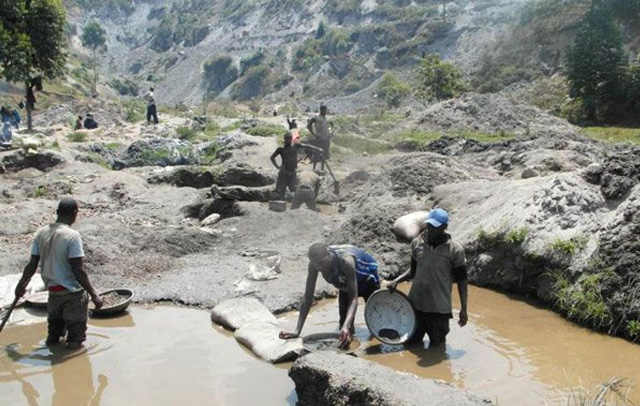
Buhweju, Uganda | THE INDEPENDENT | Small scale artisanal miners in Buhweju in Western Uganda are still chasing for permission to go back to their mines six years after they were evicted and a year since they last petitioned the government.
In 2013, President Museveni directed that firms involved in gold mining in Buhweju district stop immediately because their licenses only allowed them to prospect for minerals and not to participate in mining activities. The president later banned the export of unprocessed minerals from Uganda advocating for value addition which would earn the country more.
This added to the decline in incomes of artisanal miners since the export market for their crude minerals had now contracted. Last year, following the enforcement of the export ban by the Uganda Revenue Authority, companies reported that they were laying off staff since they could not meet the costs.
In Mubende, artisanal miners evicted in 2017 have slowly been allowed to resume operations after the government agreed to grant licenses to organized groups. Their counterparts in Buhweju now say they do not know why their activities remain banned yet there is a lot of illegal mining and export of various minerals including gold and wolfram.
Uganda has more than 300,000 artisanal miners compared to 160,000 in Kenya and 45,000 in Rwanda. Speaking at the 4th Annual Citizens Conference on Mining in Kampala, artisanal miners continued to accuse the mineral police protection unit of corruption and overseeing illegal mining activities in the areas. The miners also called for government support with capital as they have depleted their capital and savings since the bans were instituted but also called for the passing of the new laws that would streamline activities in the industry.
The miners however expressed hope that the current efforts by the Ministry of Energy and Mineral Development show a willingness to fast track resolutions to their problems. State Minister Sarah Opendi assured them that that the law will answer most of their grievances including the illegal use of mercury in mining and added that the police mineral protection unit is not under the ministry’s command.
The mining sector falls under the sectors that have been listed for reporting on under the Extractive Industries Transparency Initiative which advocates for transparency in the targeted sectors to ensure that they benefit citizens and residents in the areas where the mining activities take place. Uganda was admitted to the global initiative last month.
The Executive Director, Global Rights Alert, Winfred Ngabirwe expressed fear that the discussion of mineral wealth and related issues had concentrated on the oil and gas sector which is not good for the other minerals.
*****
URN
 The Independent Uganda: You get the Truth we Pay the Price
The Independent Uganda: You get the Truth we Pay the Price





